My helper from hell: Agent exposes dark secrets of human organ harvesting
The pasture, on the other side, could indeed be greener.
As green as a four-leaf clover.
So green and gorgeous are Stanley Park, UK, and the Parc de la Villette, France, that one would wonder whether the brown patches at the Accra Sports Stadium or the Bole National Park should be classified as grass or something from Mars.
It is no surprise that 75% of Ghanaians said they were likely to ditch the country in a 2018 Pew Research Center survey.
Between the supposed ‘milk and honey’ and ‘hades’ lies predators ready to pounce on and lure desperate abroad seekers.
The goal is to entice, dismember, and harvest the human organs of the unsuspecting victims and sell them for exorbitant prices on well-fashioned black markets, enriching the pockets of the greedy, cruel syndicates.
The dark, secretive global business of illegal human organ trafficking goes on every day, every time, and every moment, maybe at a place near you.
Ghana is no exception, as a supposed organ harvester exposes the operations of the syndicate.
In the quest to unravel some mysteries behind organ harvesting, The Ghana Report uncovered the story of 25-year-old Patrick (not his real name), who is an organ harvester.
The young man, who describes himself as a medical laboratory scientist who completed Accra Technical University (ATU) in 2021 and was introduced to organ harvesting by his roommate, took to the anonymous platform, Jodel, to share how his desire to make wealth turned him into a barbaric executioner.
According to Patrick, it was the beginning of a new semester, and he was looking for a hostel somewhere in 2019.

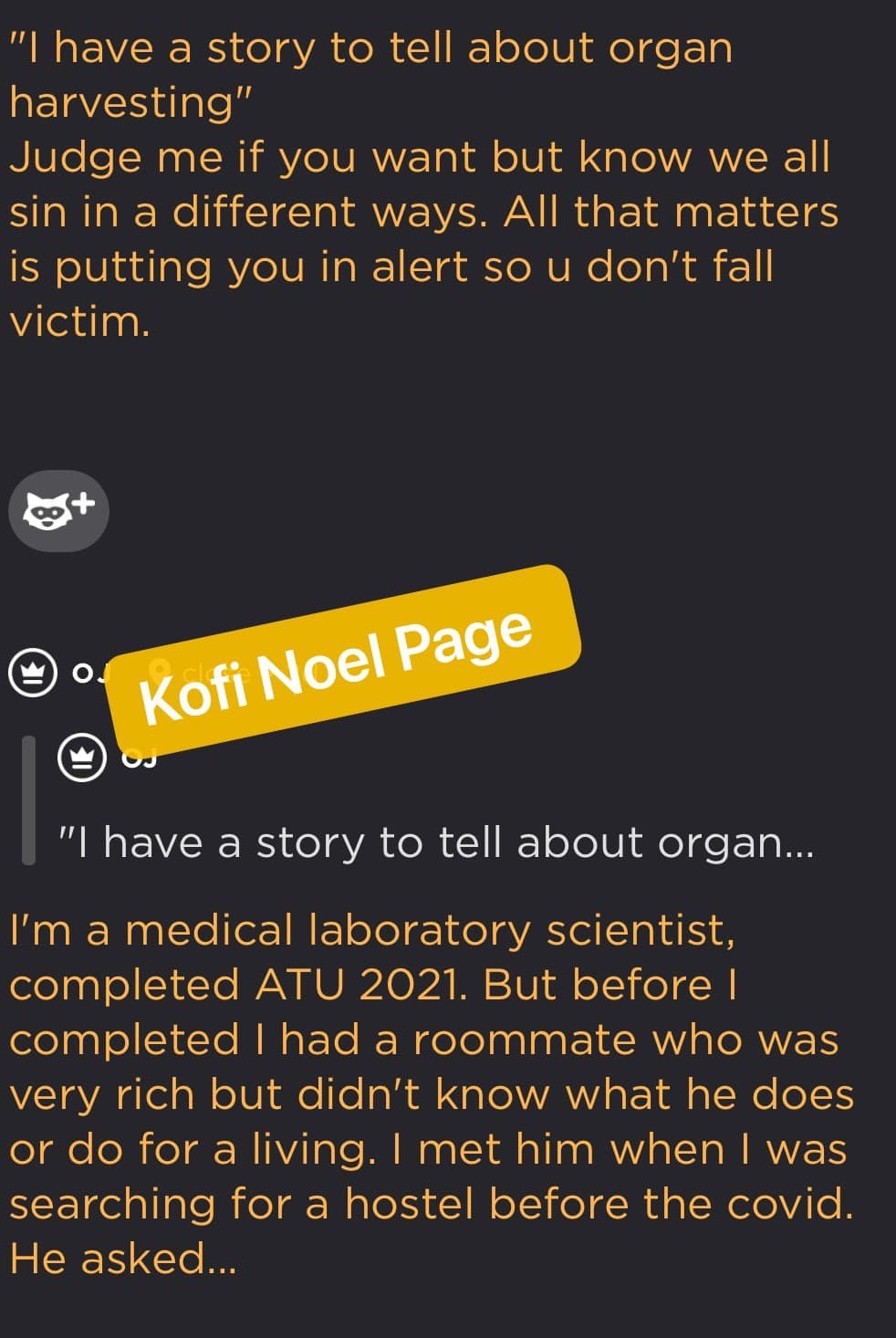

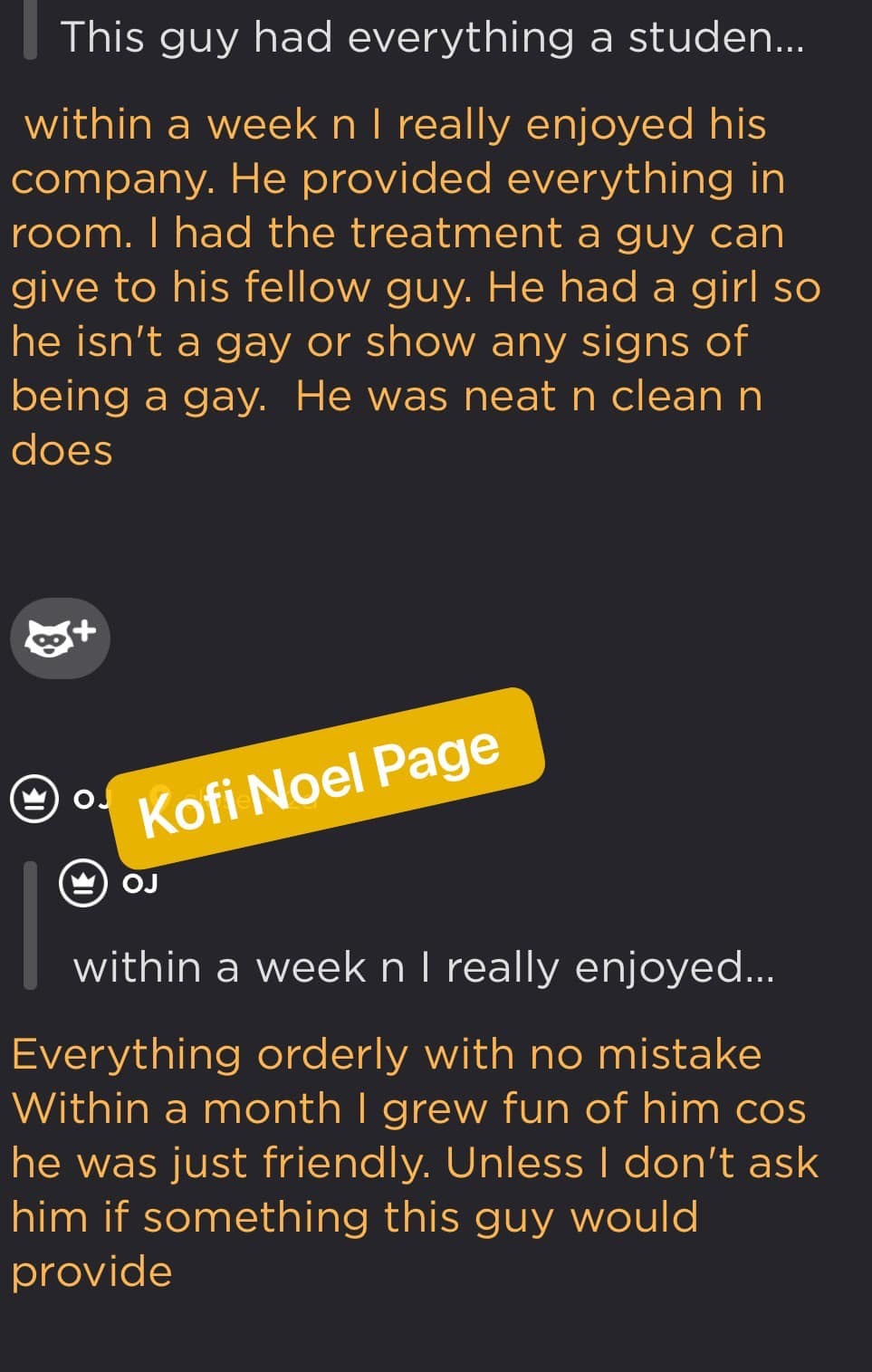




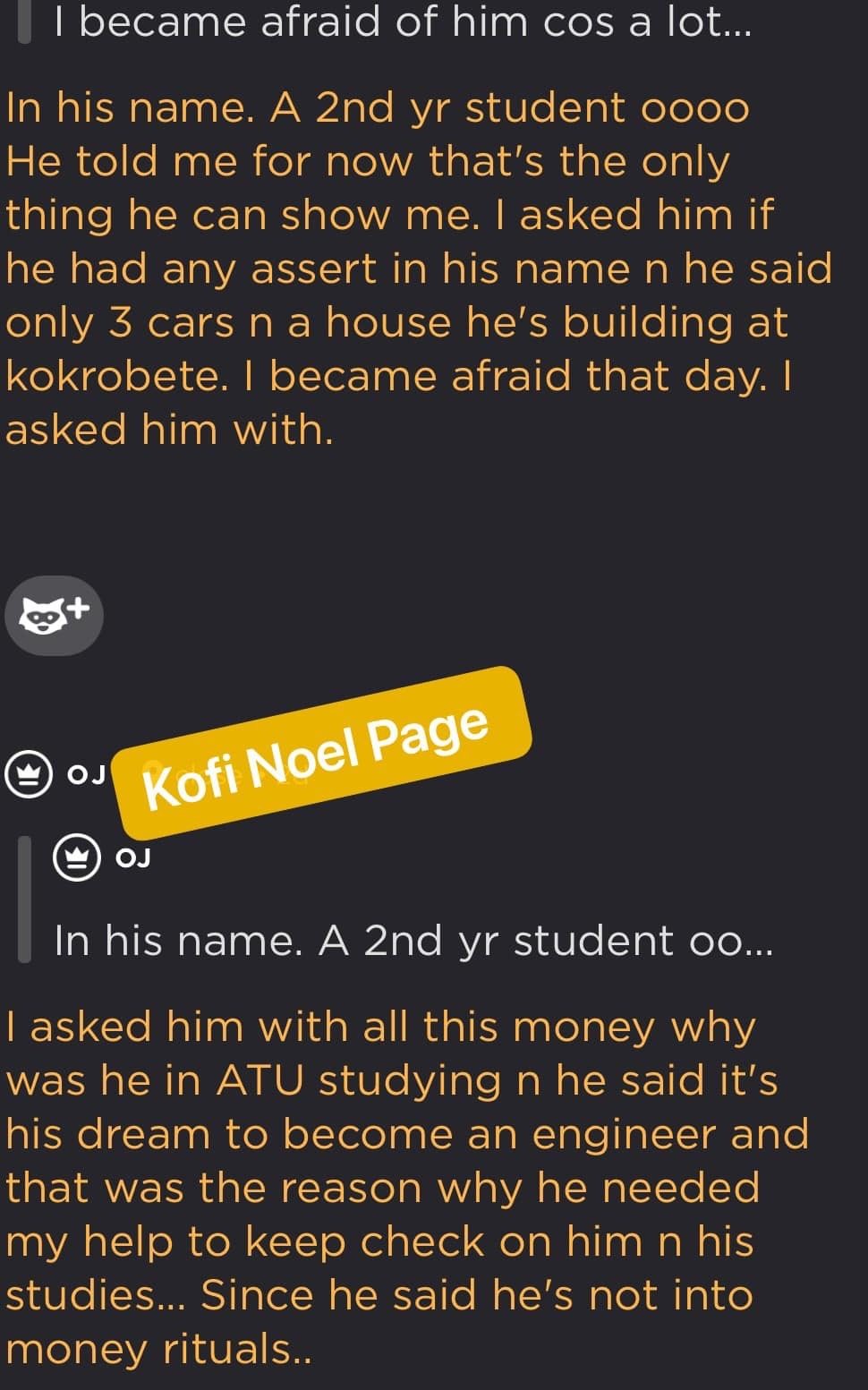





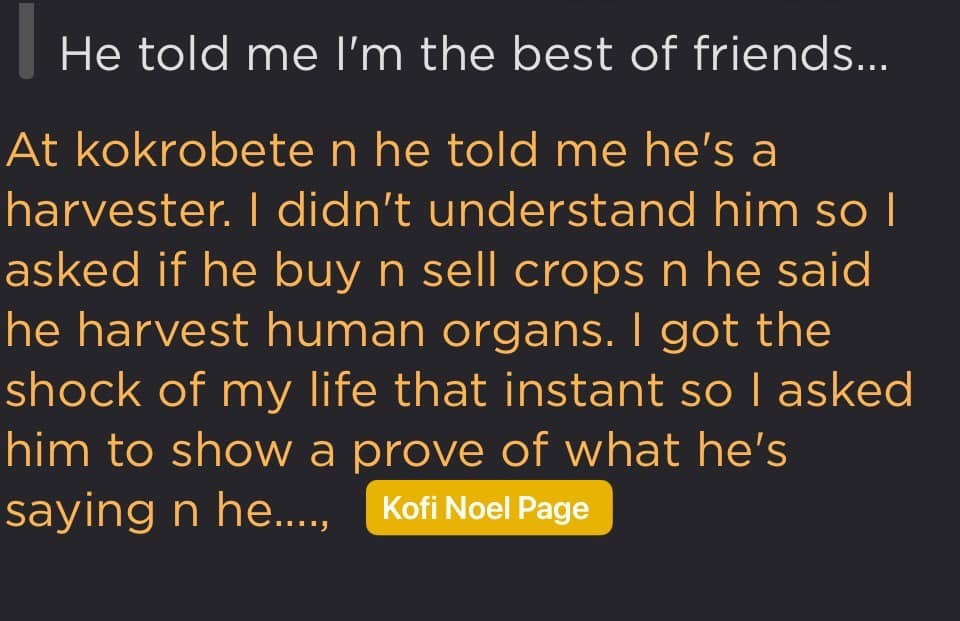

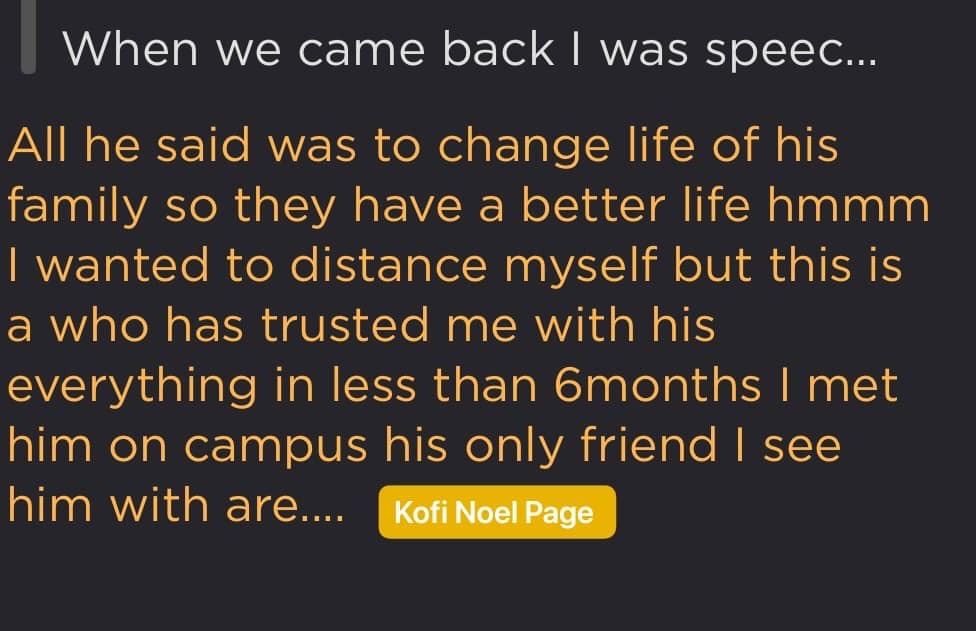
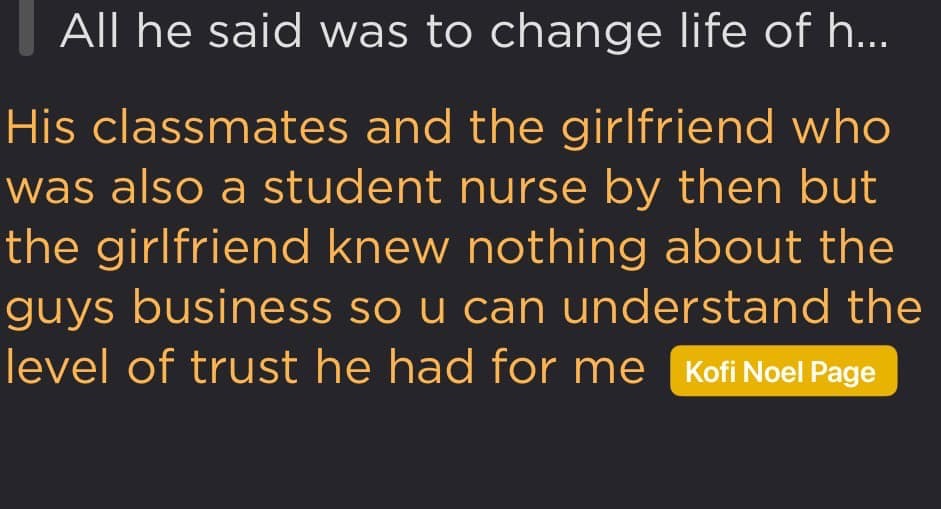
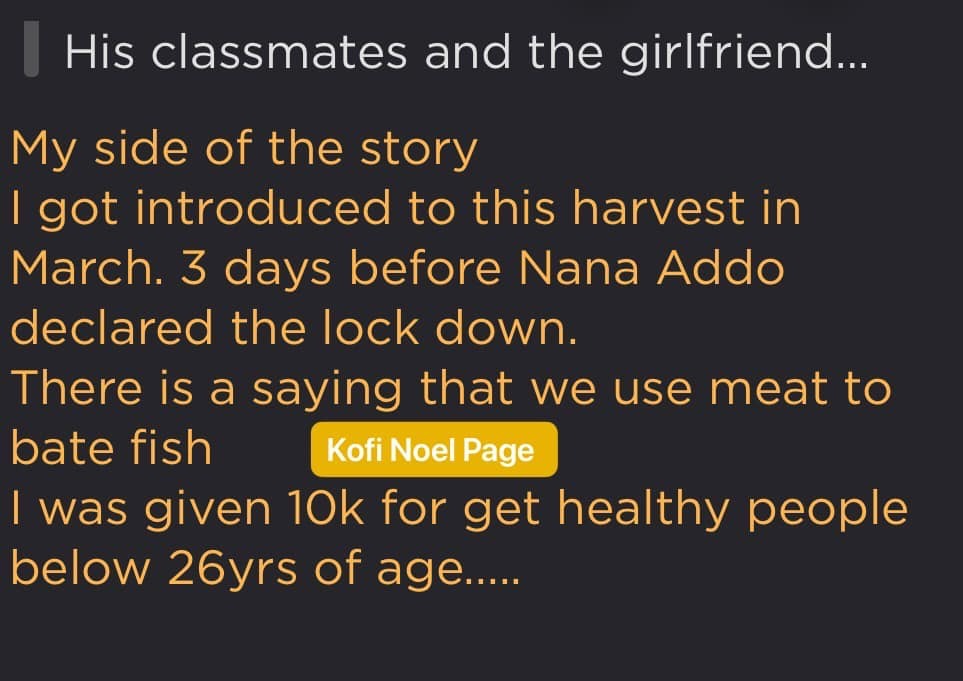

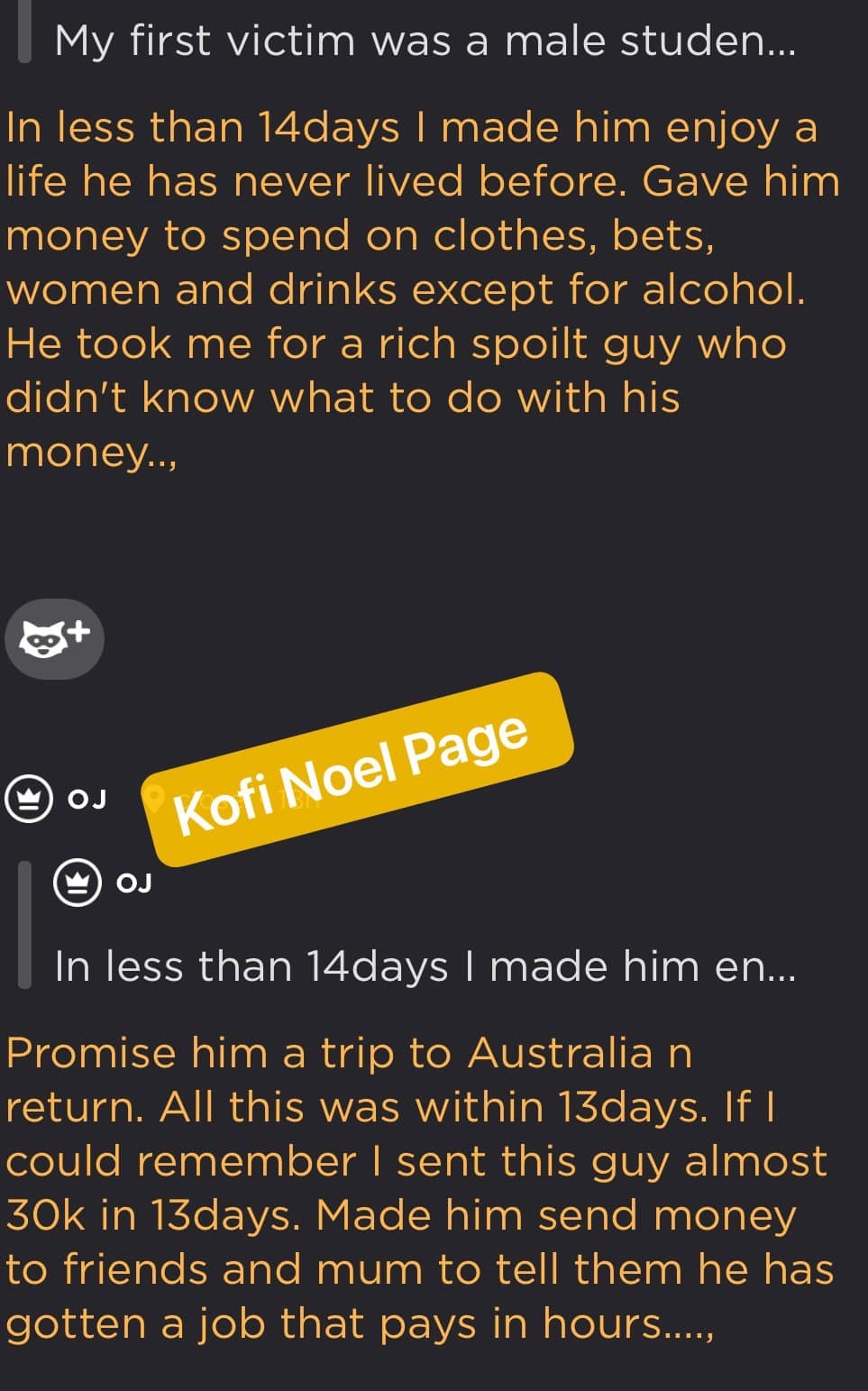



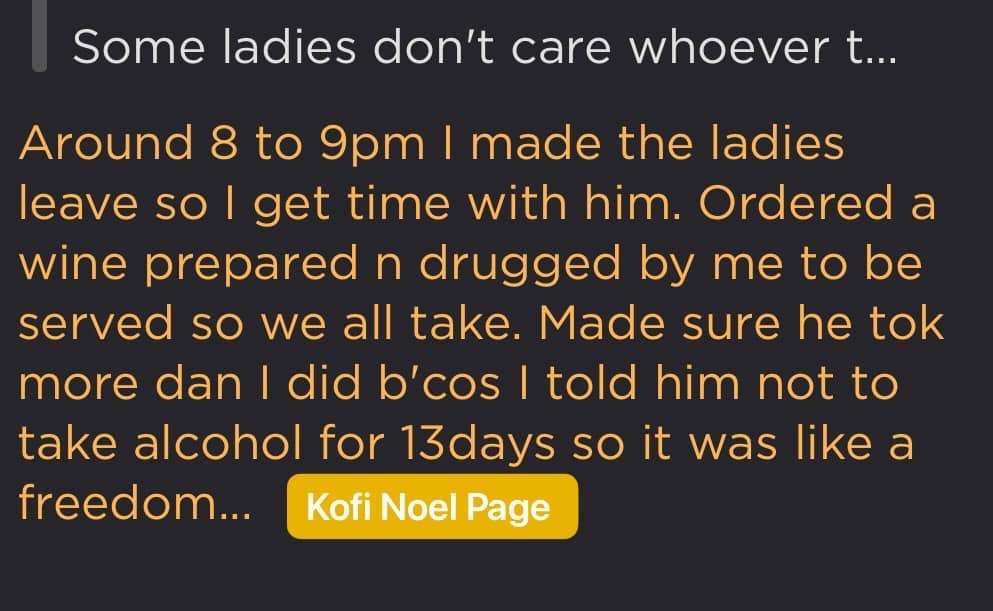
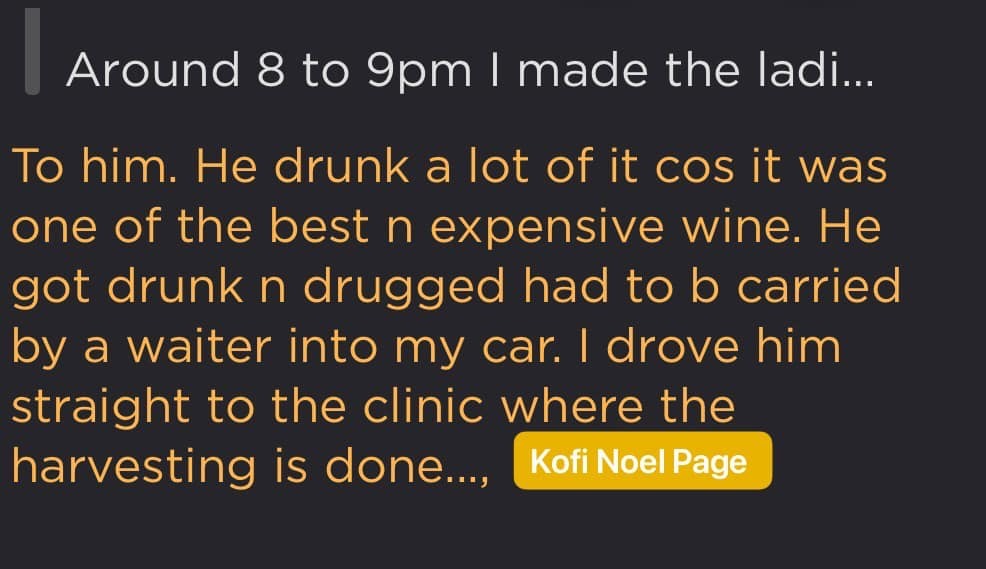

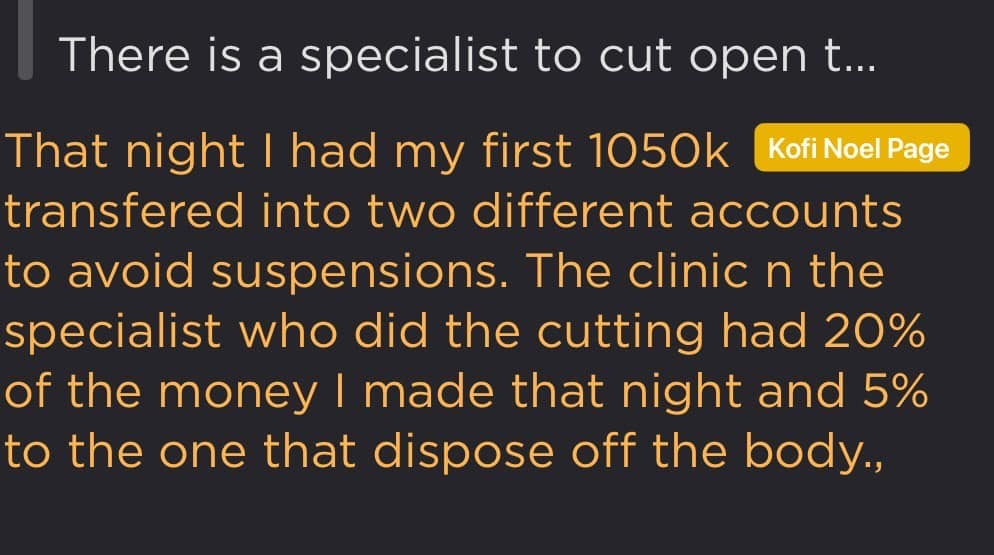
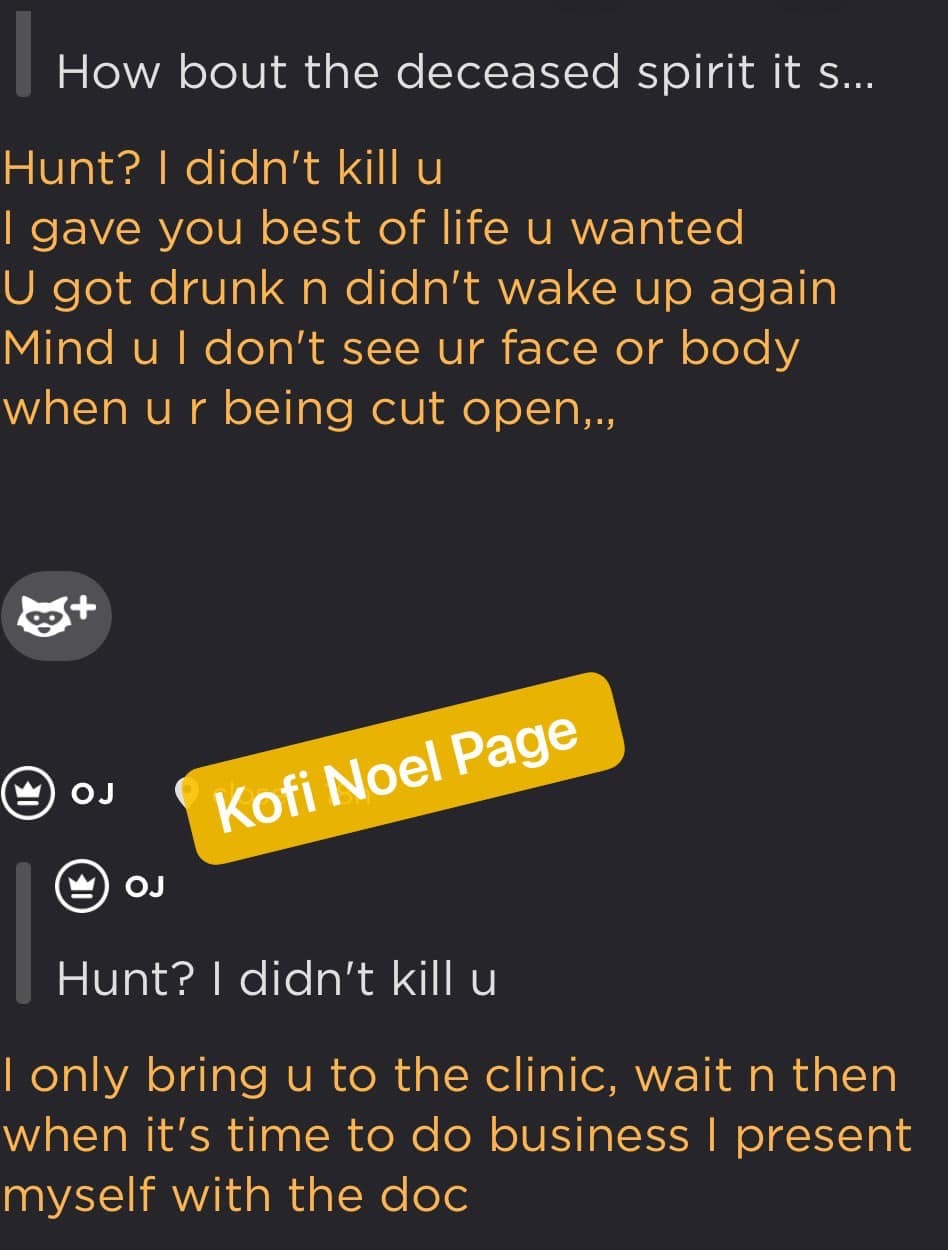



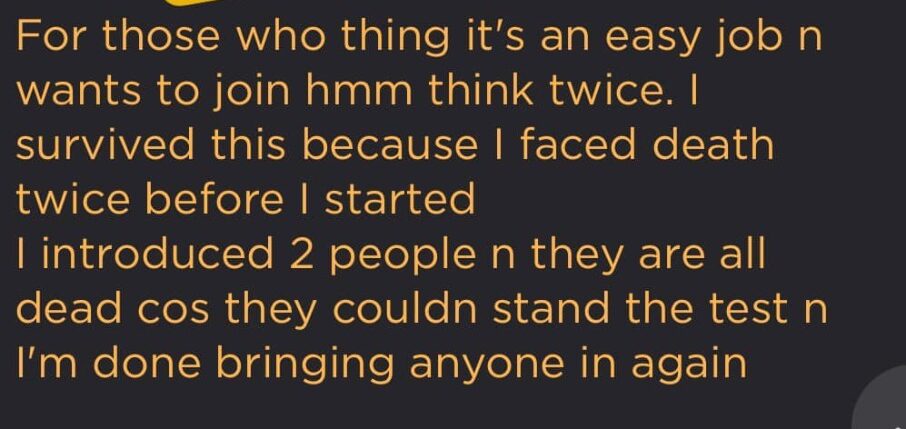


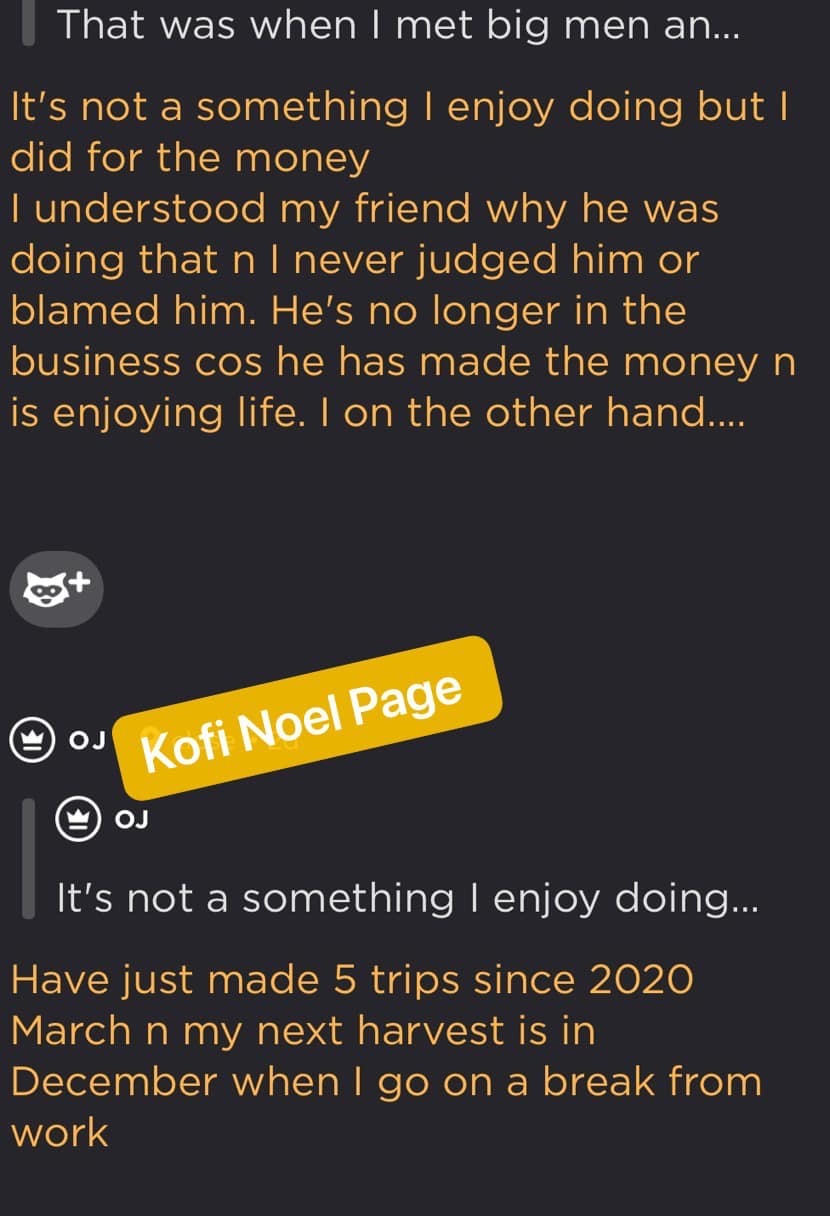
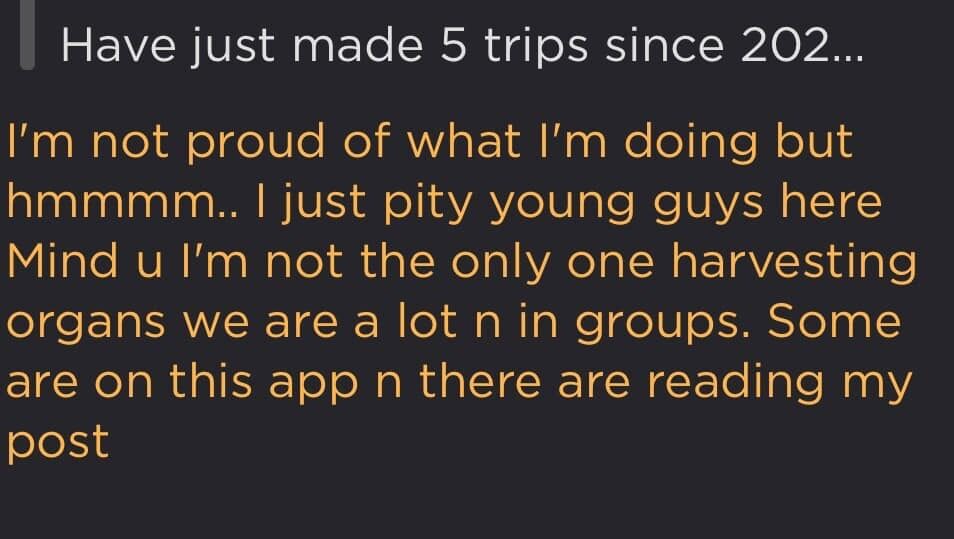
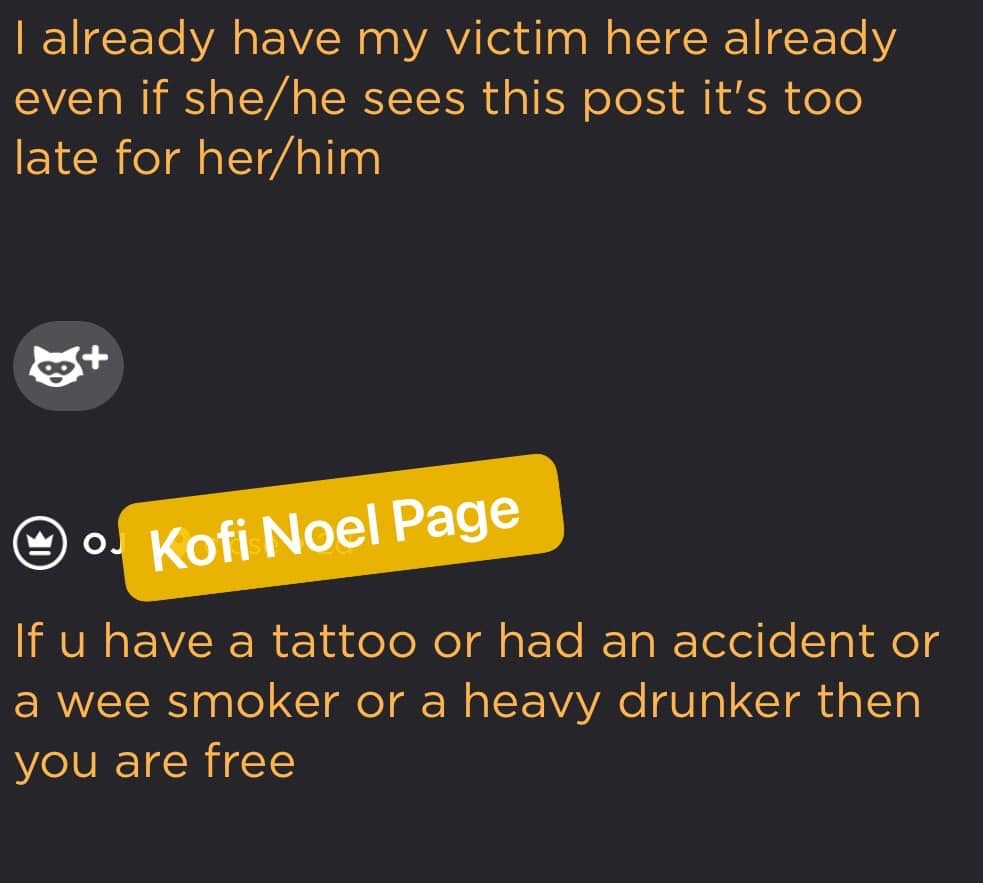
The above images are the confessions of the organ agent operating in Ghana and on how the syndicate scout for their victims and eventually harvest their organs.
A few years back, an audio went viral on social media confirming the existence of such activities in Africa, especially in Ghana and Nigeria.
The originator of the audio, a Nigerian, alleged that there were some of his countrymen who had fled to neighbouring Ghana to continue what he called the ‘kidney business.’
“Some of them are there to start their kidney business if they’re able to dribble your young girls.”
“They send them to Indonesia and other parts of the world to harvest their organs.”
He gave the Ghanaian authorities a heads-up, asking them to be wary of his fellow country folks.
“Chase them out; they’re criminals; send them back home,” the man angrily uttered.
According to him, some agencies and individuals were luring young Ghanaians, mostly women, to go to the Arabian world and China with the promise of finding them well-paid jobs that never existed.
“Most of them got trapped, raped, starved, and killed. I repeat, the harvest is real, so choose your friends carefully,” he added.
Confirming to The Ghana Report, Assistant Superintendent of Immigration (A.S.I.) Justice Kudzo Normeshie, Officer-in-Charge of the Anti-Human Smuggling and Trafficking Unit of the Ghana Immigration Service, Aflao, disclosed that cases of organ harvesting exist in Ghana, but most times the victims who could assist in investigations are found dead, which makes it very complicated in the search for culprits to prosecute them.
“We hear about organ harvesting cases, but it’s rather unfortunate that the victims do not live to tell their stories and assist with investigations. People are often lured with juicy job offers in other countries and eventually fall prey to organ harvesters. Cases that are often encountered on the Aflao border, are human trafficking for criminal activities, like scamming, Qnet, and prostitution. For such cases, most times, , these criminal activities could be detected at the borders, and the law is allowed to take its course. Other times, the victims can escape and report to authorities, and subsequently, investigations are conducted. The culprits are made to face the law.”
A.S.I. Normeshie added that most times, after entering the borders of the country, organ harvesters and people with criminal intentions tend to familiarise themselves with indigenes and, after gaining their trust, lure them and eventually take advantage of them by either kidnapping them or eventually killing them.
The officer admonished that to curb the menace of organ harvesting and human trafficking, all stakeholders of the security agencies are to be in constant operation, and the citizens must comply with the National Security’s campaign, “See Something, Say Something”.
A.S.I Normeshie added that landlords should always conduct routine checks in the houses they’ve rented out, especially to foreigners, to assess what happensn in the house and report any sketchy feelings or actions.
He is not the only person of authority in the Ghana Immigration Service to speak about human organ harvesting.
Assistant Superintendent of Immigration (A.S.I.) Elizabeth Serwaa Kwarteng of the Migration Management Bureau of the Ghana Immigration Service (GIS) cautioned Ghanaian travellers about the horrors of criminal gangs involved in illegal organ harvesting.
The Anti-Human Trafficking Unit of the Ghana Police Service also raised an alarm over organ harvesting syndicates that may lure members of the public abroad for illegal organ harvesting.
In 2021, the Head of the Anti-Human Trafficking Unit, Chief Superintendent Mike Baah, said some syndicates seek to lure unsuspecting victims abroad with juicy job offers and deals and urged Ghanaians to be alert and careful to avoid falling victim.
He said the syndicates were well-connected and powerful.
Chief Superintendent Mike Baah added that the security services should focus on arresting the organ-harvesting syndicate and not the victims since most of them are naive and unaware of the menace’s plans.
“Our focus must be to get the perpetrators, not the victims; they need your support,” he said.
In an intriguing revelation by an investigator and security threat analyst, Mr. George Dosoo Doyen, there is a human trafficking syndicate operating in the West African sub-region that is in the business of abducting and killing innocent people.
He said they kill and harvest the body parts of their victims for sale in Thailand, Indonesia, India, Singapore, and other foreign countries for exorbitant fees.
These human organs, he said, were mostly sold to people with kidneys, hearts, livers, lung problems, and other sensitive parts of the body for transplant.
The syndicate often comes to the West African sub-region, abducts innocent people, and subsequently kills them for that purpose.
Others kill people for money rituals and acquire spiritual powers.
“Nowadays, members of such syndicates use spiritual powers to hypnotise innocent persons, and when they touch any part of your body, the victim follows them wherever they are going.
“This organ harvesting is a booming business, and we need to pay close attention to this human trafficking menace because it’s draining us as a nation,” Mr. Dosoo Doyen fumed.
Kidneys are reportedly the most sought-after human organs.
The UN Agency for Health (WHO) says approximately 7,000 kidneys are illegally harvested annually by traffickers worldwide, and the prices vary by country.
In the United States, 103,984 individuals are waiting for organ donors to undergo transplantation, and out of these numbers, 89,439 individuals are on the waiting list for kidneys, 835 for Pancreas, 2,115 for kidneys, 9,678 for liver, 199 for intestines, 3,433 for hearts and 922 for lungs.
The reports state that of this number, about half will die before they receive one.
There are black markets for hearts, livers, intestines and lungs, and even skins, but the kidney is the most sought-after.
According to a professor of medical anthropology at the University of California, Berkeley, USA, Scherper-Hughes, “There’s a huge scramble to find organs, legitimate or otherwise. The demand for organ transplants, especially kidney transplants, is on the rise.”
However, the Chairman of the Board of the Korle-Bu Teaching Hospital, Dr. David Nkansah, has called on the Parliament of Ghana to expedite processes to legalize organ donation, harvesting, and transplanting in the country.
He said that doing so would save thousands of Ghanaians who need organs.
“We are therefore calling on parliament and other agencies to support the preparation and passage of the law on tissue donation, harvesting, and storage of various organs that will save the lives of thousands of Ghanaians who are sick and in need of them,” he stated.



